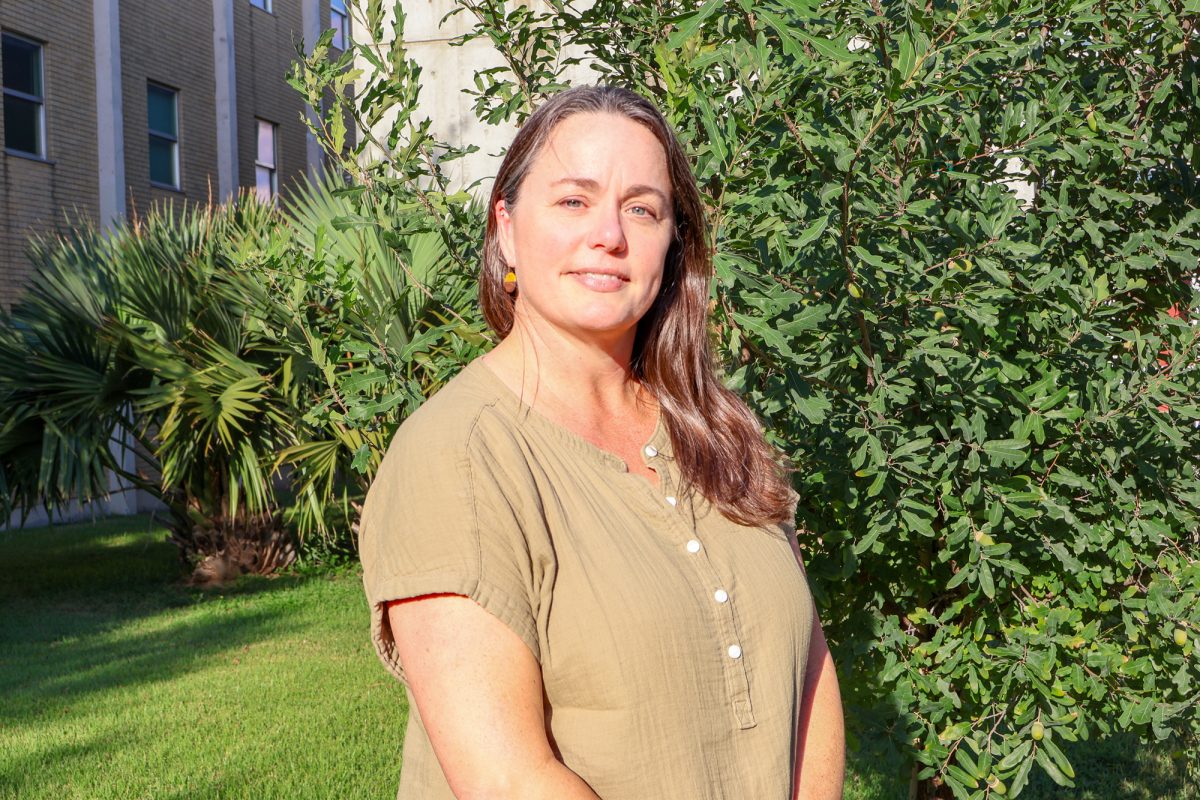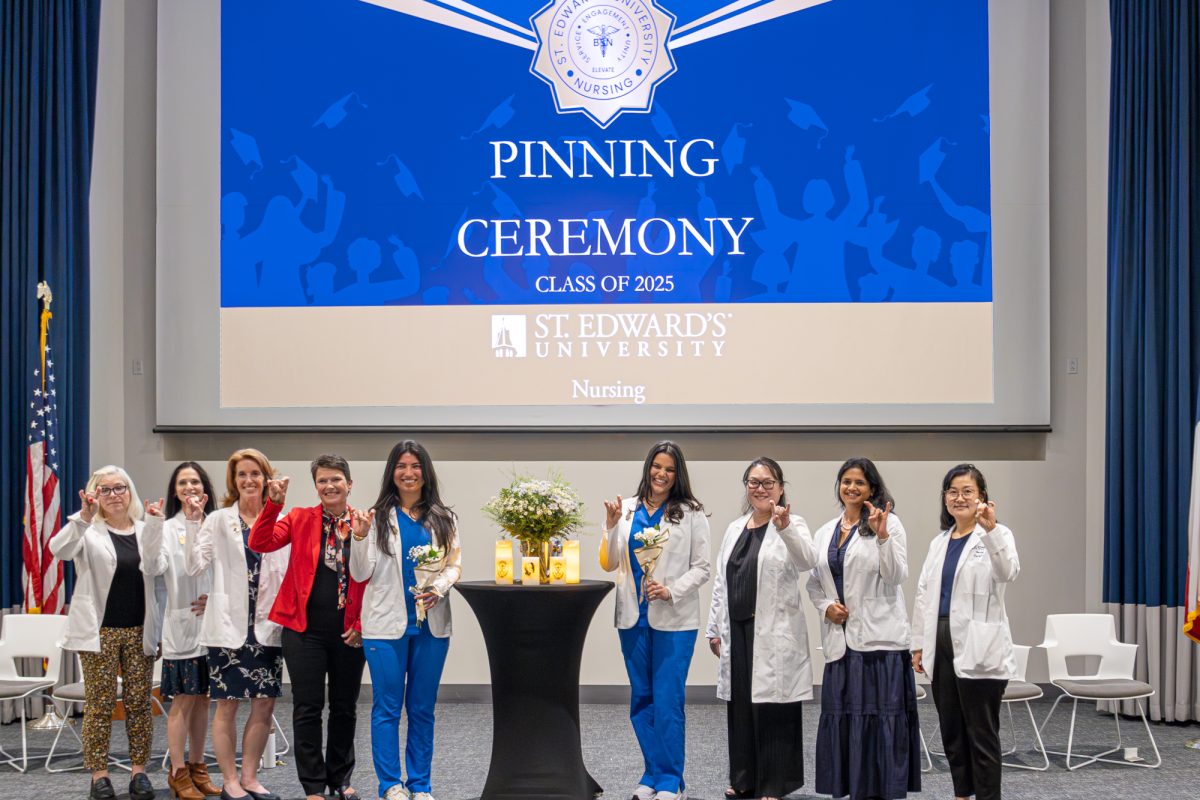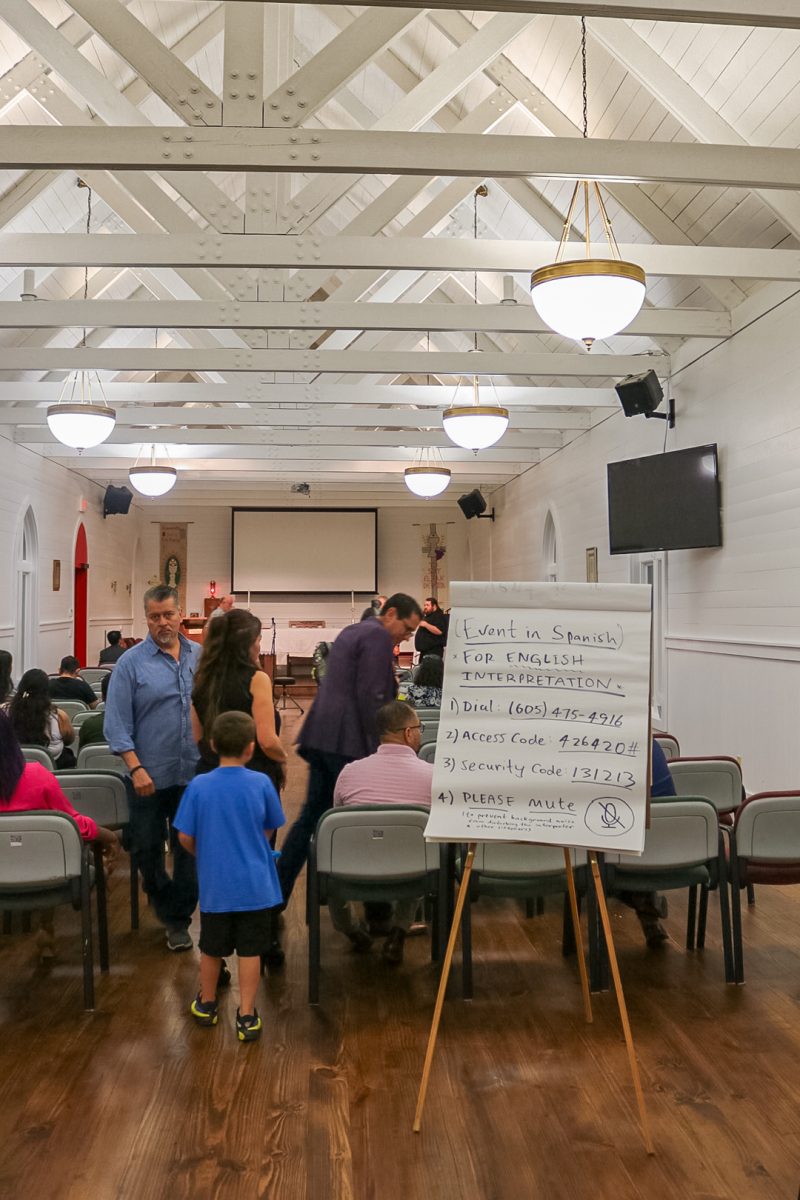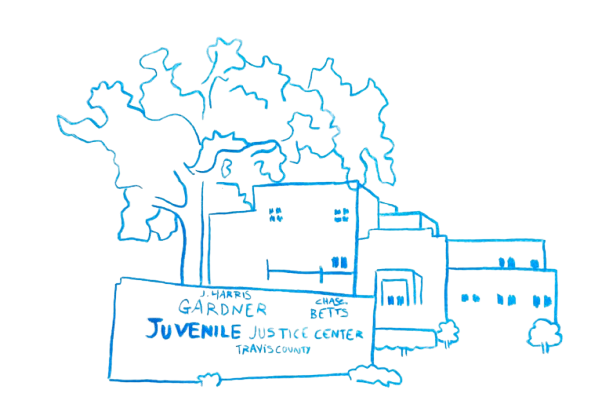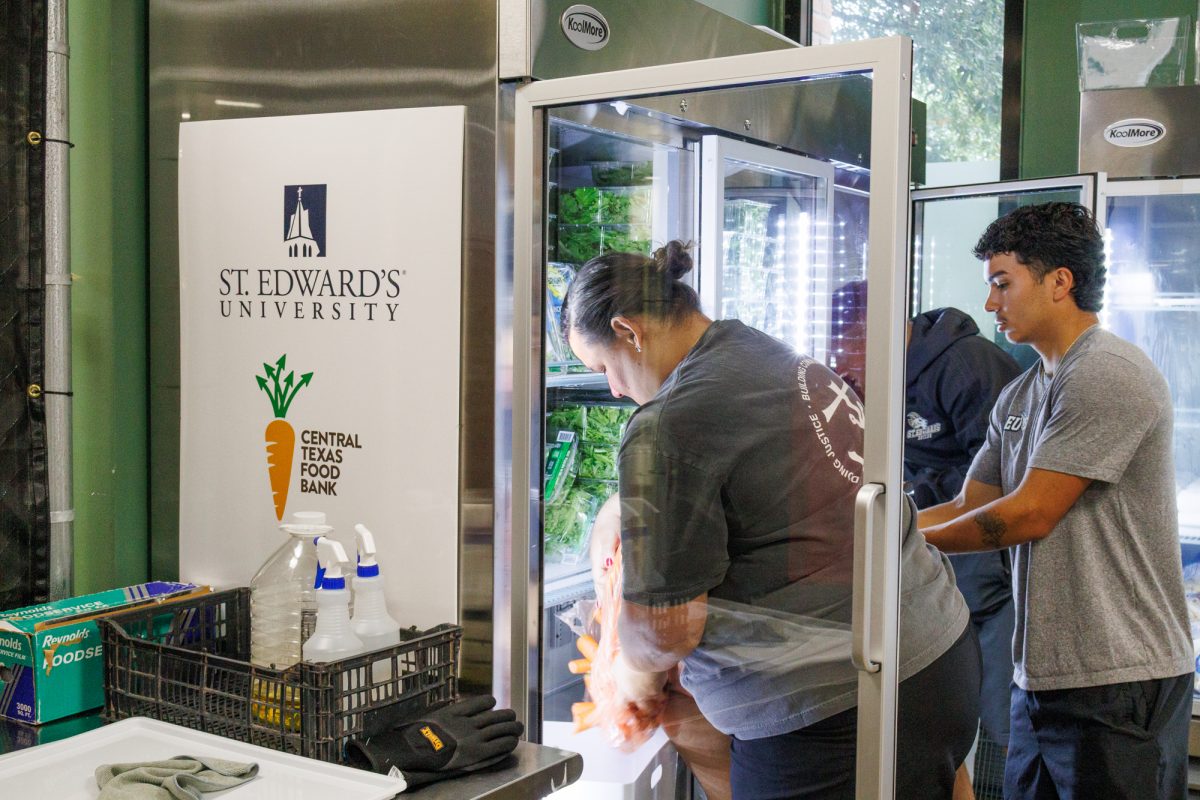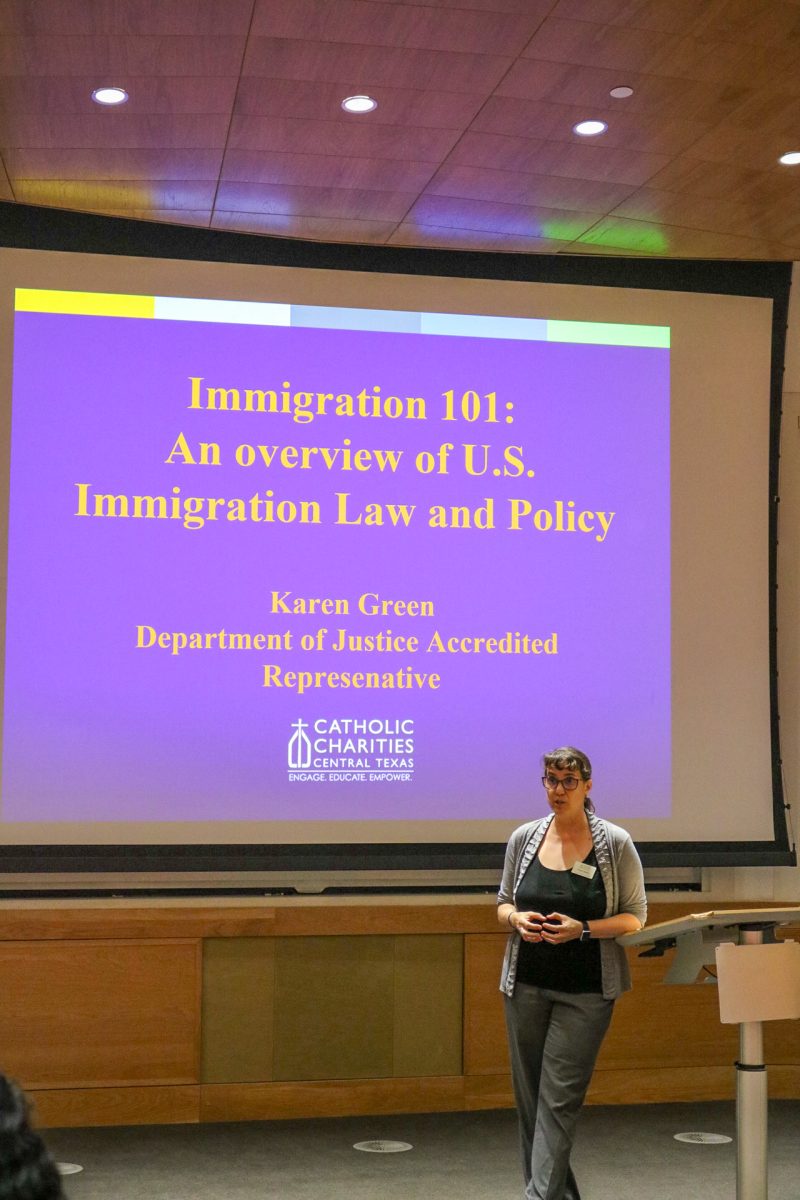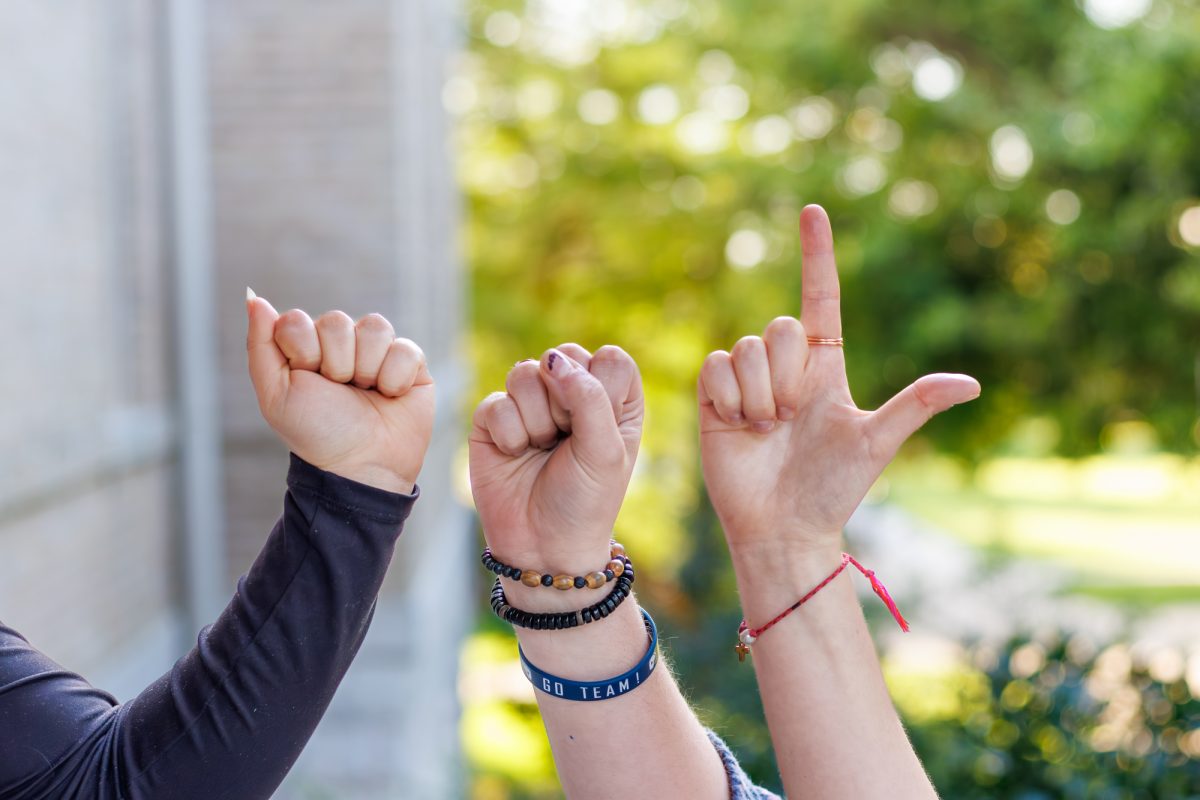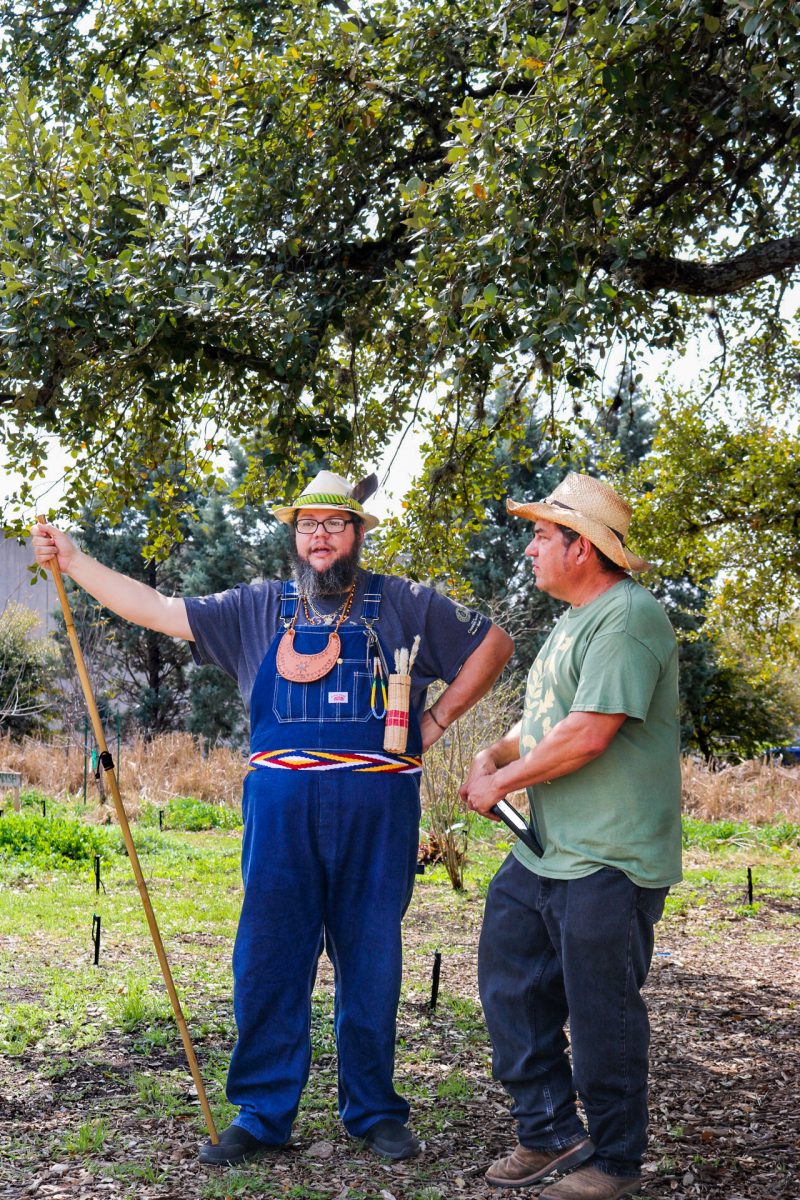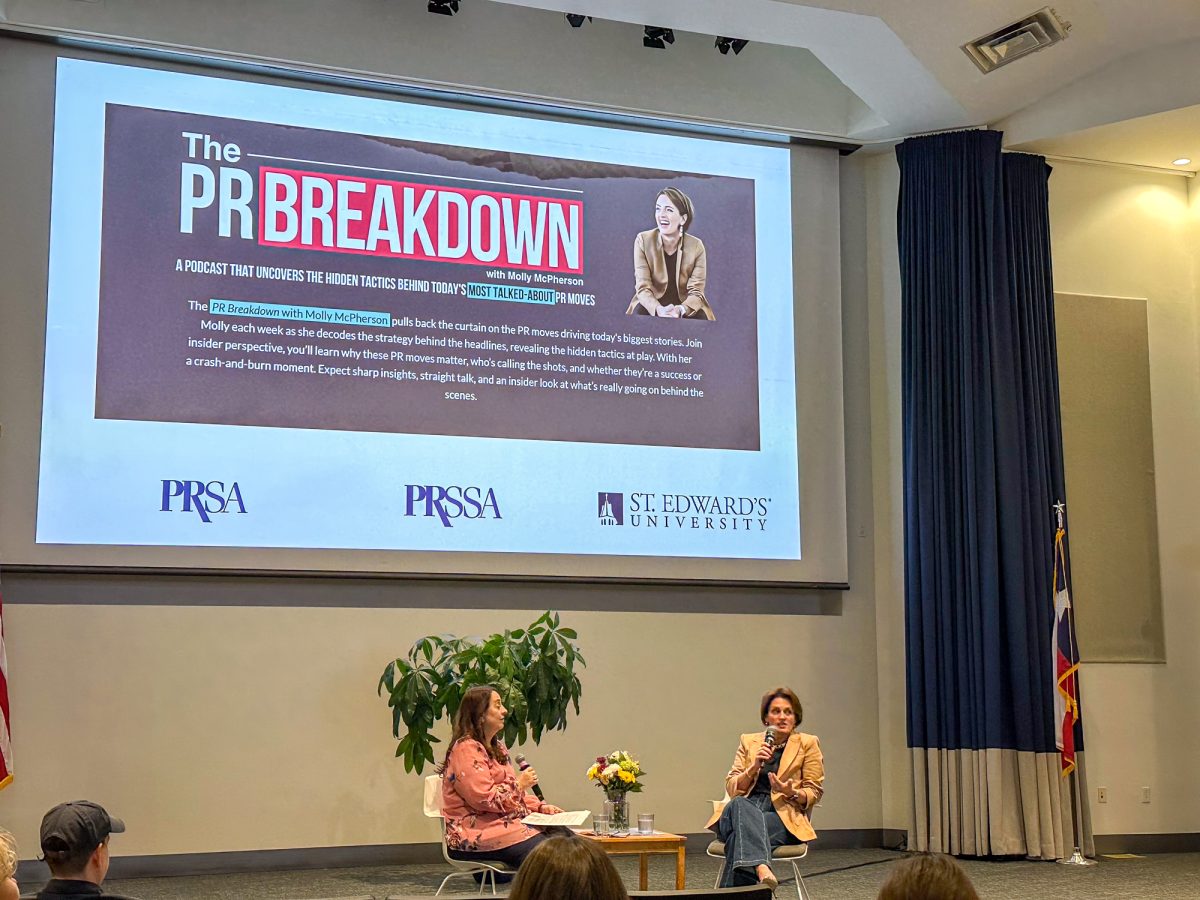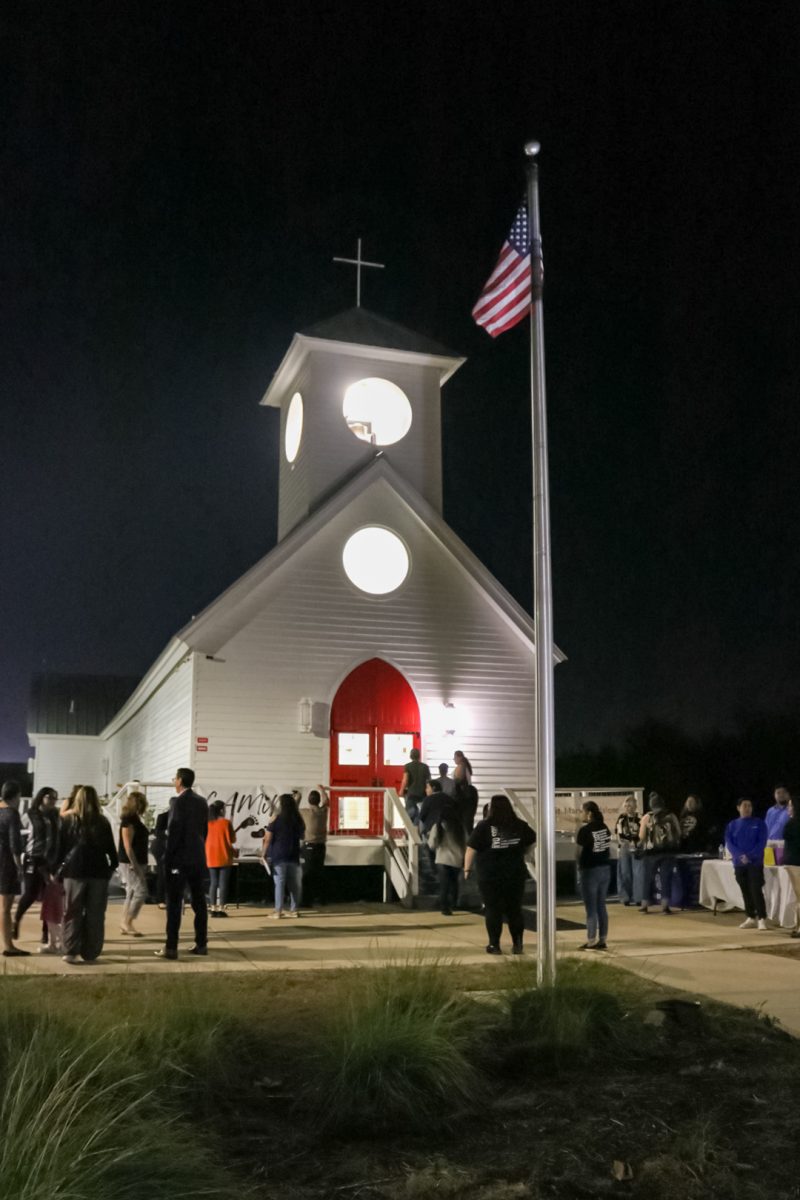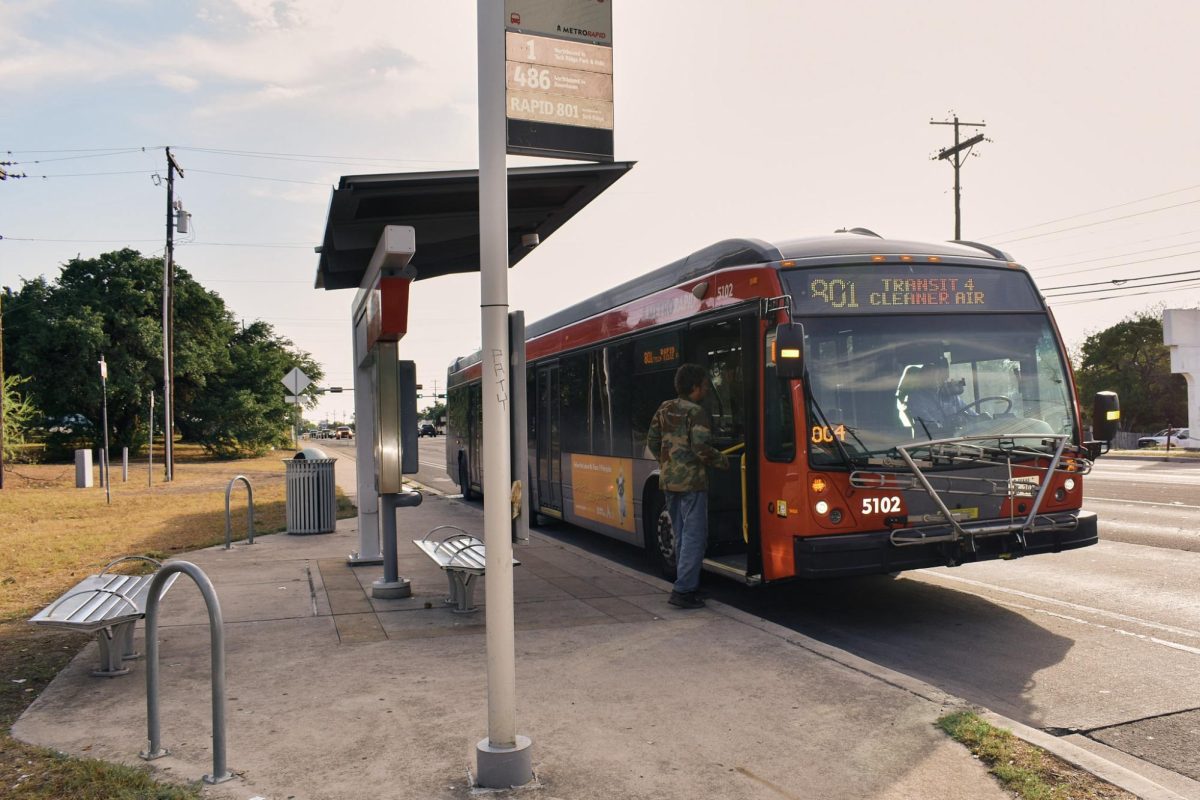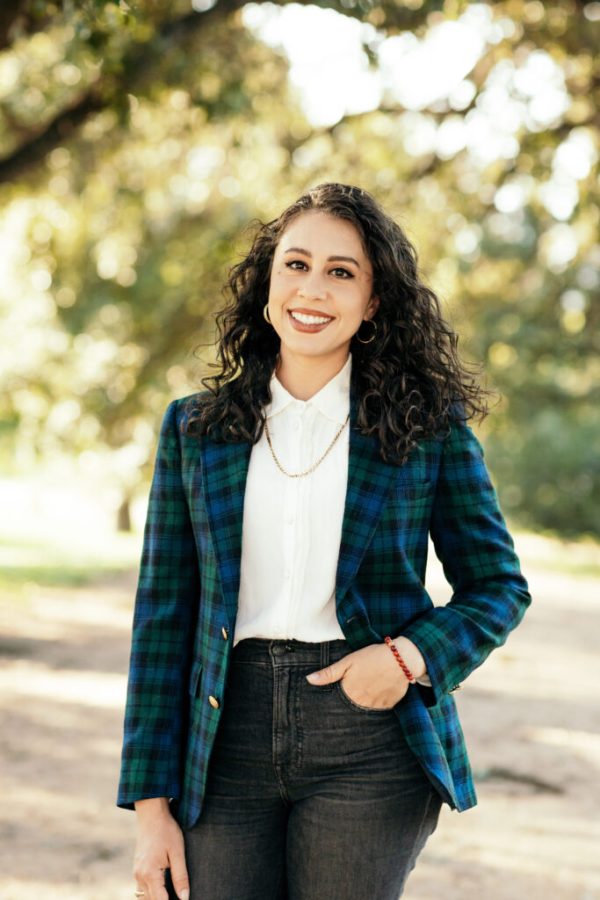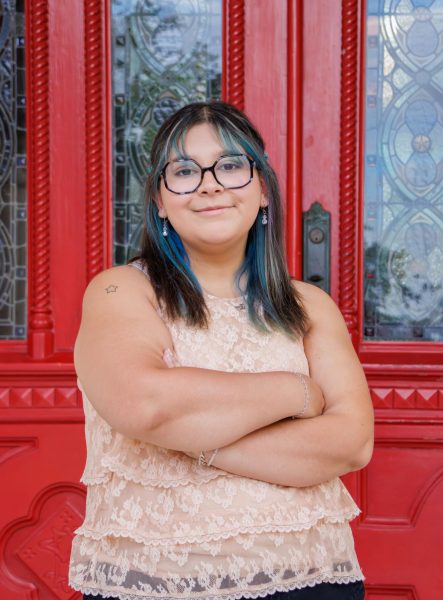As the semester begins, students and faculty are hopeful for a great school year. Hilltop Views reporters Sophia Montalvo, Anna Pratts and Nicole Williams-Quezada sat down with the dean of the Bill Munday School of Business, Alexis Stokes, to learn more about what her plans are for the semester ahead.
Stokes gave insight into her role as dean, the school’s AI forward curriculum and what students can expect this school year. What follows is a Q&A from that discussion, edited for clarity.
Would you mind telling us about why you chose St. Edward’s and what your main responsibilities are as the dean of the Bill Munday School of Business?
First of all, the reason I chose St. Ed’s is because of our mission. I love that every single person who works at St. Edward’s is mission-aligned. It is a really special culture when you feel that unity among all of the faculty and staff, that we’re all here because we believe in you, and we want to provide the most transformative opportunities for you and your lives and your families and your communities … I also think St. Ed’s is such a special place culturally: it’s very collegial, it’s extremely collaborative. I think it’s also very tech forward, which I really appreciate. We embrace technology as a productivity tool here. I love, of course, our beautiful campus. I mean, (it’s) the most gorgeous campus in Texas for sure. And when I first walked on campus, I felt such a sense of peace. I think my blood pressure literally went down … I love the students, and I really believe in what we’re doing here … I’d had my eye on St. Ed’s for a long time and when the right job came along, I obviously leapt at it.
In terms of my responsibilities here at the Bill Munday School of Business, I’m sort of the chief academic officer for the business school, so I report directly to the provost. She’s my boss, (so I have to be) in alignment with her and the priorities of the university. I set priorities and goals for the Bill Munday School of Business. I have oversight over our academic enterprise, making sure that the quality of what we do is the highest it can be. I oversee our research activity as well, our budget, our personnel and staff. I help mentor and support faculty in their development, and I represent the school externally with donors and businesses and friends of the university to raise the visibility of the Bill Munday School of Business in St. Edward’s University generally, and to help garner resources and support to make all of our programming possible.
How would you describe the Bill Munday School of Business in three words?
Vibrant, collegial and driven.
What sets the Bill Munday School of Business apart from other business schools in Texas?
I think that we are very singularly student focused. Here is our biggest differentiator. We allow students to really take a very personalized approach to their business education. Students here can choose their own adventure between 10 different majors (and) seven different minors … Our classes are obviously much smaller than most business schools in Texas, and because of that, we can dedicate more resources per student, more time … Our faculty … are here for you, and they love being here for you …The fact that every student here at the business school and at St. Ed’s generally has a success coach that follows them for four years as well as a career coach, as well as a faculty adviser, (which) provide multiple layers of support that help ensure student success. And that’s why I think we see such strong retention rates and graduation rates among our business students: because we work as a team to support our students holistically.
How is the Bill Munday School of Business adapting to AI and education?With AI perhaps taking opportunities for students who are going to graduate, what is the school doing to adapt to an AI-forward world?
At the Bill Munday School of Business, we embrace artificial intelligence. And the reason for that is AI is not new to business. AI has been used in business for decades, literally for natural language processing, for pattern recognition, pattern recognition for chatbots, for targeted marketing and advertising. Generative AI in the form of ChatGPT is of course newer to all of us, but AI is not new in business … And I know that certainly generative AI has its challenges in terms of how it can be used ethically and critically as a productivity tool … So we incorporate AI literacy and AI tools into our curriculum across the board within the business school, and we encourage its use, again, ethically and critically because AI doesn’t get everything right, at least not yet.
That said, what we’re more interested in is teaching you how to be lifelong learners, how to be curious, how to adapt, how to be resilient, and those are things I think that we do really well as a university across the board. So I remain very optimistic for the future of business, and I remain very confident that the preparation we provide at the Bill Munday School of Business is rock solid in terms of preparing students for the future, not just the next five years, but the next 50.
I’m glad you mentioned preparing students for the future. How does the Bill Munday School of Business set students up for success in their post-grad, especially now with such a complicated job market for recent graduates?
The job market is challenging, but we also know in business that that’s very cyclical. That said, we incorporate career readiness skills throughout our entire curriculum. The Bill Munday School of Business pioneered the career edge program, the MSB Career Edge, which is industry driven workshops, seminars, all sorts of programming that is led by industry executives, people who are actually in the real world, who are actually hiring and working and know what’s going on, who are very relevant, very current. They come to our campus and they help our students develop all of the personal skills and the professional skills needed for success.
Within the classroom though, is where it gets even more exciting. And that’s because at the Bill Munday School of Business, we incorporate experiential learning throughout our curriculum, meaning that you’re learning by doing, you’re working on real projects with real clients, with real stakes in real time. And that is really powerful work. It not only provides the opportunity to connect theory to practice, which is incredibly important, especially in business, but it also gives you those resume experiences that you can take then to the workplace.
And I spend a good amount of my time developing new internship partnerships for the school and for the university because we want to make sure that you’re not just interning — and hopefully getting paid for interning so you can pay your bills at the same time — but that you’re interning and competing for internships with the best and brightest from around the country. And we’ve had tremendous success in the past year especially.
Can you tell us more about the main experiential learning experiences that students engage with?
So experiential learning is a broad umbrella. It includes internships, it includes devoted research time, and it includes study abroad, among other things … Within the business school, again, we’re in the business of internships. And so that’s the expectation: that all of our students do at least one internship. Most of our Bill Munday School of Business students do at least two or three, and that’s because you build off of them progressively … You learn what you like, you learn what you don’t like … And that’s what I meant by that hands-on learning, that opportunity to connect theory to practice and develop some really sharp, marketable skills.
What advice would you give to incoming freshmen who are just starting their degree this semester?
Well, the first thing I always say is the first job of a student is to take care of themselves mentally and physically … Take care of your health, and once your health is where it needs to be, build that solid academic foundation. Go to your professor’s office hours, show up to class in college. Showing up is really truly half the battle, right? … Make sure that you’re getting to know the staff and the school of your major as well, because everyone can be a potential resource to you.
Then beyond that, I say start getting involved, and that doesn’t mean you have to do all the things at once … And then of course, being the Bill Munday School of Business, we host a lot of events for our students each year. Come to the events …And I think that sort of opportunity is a way to start integrating and getting to know people and making some friendly faces around campus and hopefully finding your place … I’ll also say to freshmen, not every freshman is going to feel at home from day one, and although we wish that weren’t the case, the reality is the transition can be challenging, and it can take a little time.
Are there any opportunities or events this semester that students can look forward to?
Absolutely … Our next big event is actually Sep. 19, and that is our Meet the Firms event for our accounting and finance students … and we bring in 10 to 15 blue chip accounting and finance firms. There’s a panel discussion, there’s sort of a bootcamp component where students are walked through what it’s like to get an internship in those spaces, and then there is a networking event. And that is really the prime opportunity for our accounting and finance students to connect directly with employers who are recruiting now, not just hypothetically, but who are actively recruiting. And every year, dozens of students land jobs from that particular event … We have panels on entrepreneurship, we have alumni panels coming up.
I also host a fireside chat series in which I meet with CEOs to discuss their journey, and it’s a very conversational evening. We have a networking reception between the students and CEOs and their staff, some really nice catering, and it’s an opportunity to really learn from the top executives in industry. And this year we are refreshing that event a bit and we’re going to be focusing on major Austin brands. So the first brand up will be Tecovas, the boot company, and we’re really excited to host them in October. And then we have some other really great brands lined up, so stay tuned to see those events. Those events are open to everybody, not just business students … And that’s true for all of the events we host at the business school.


